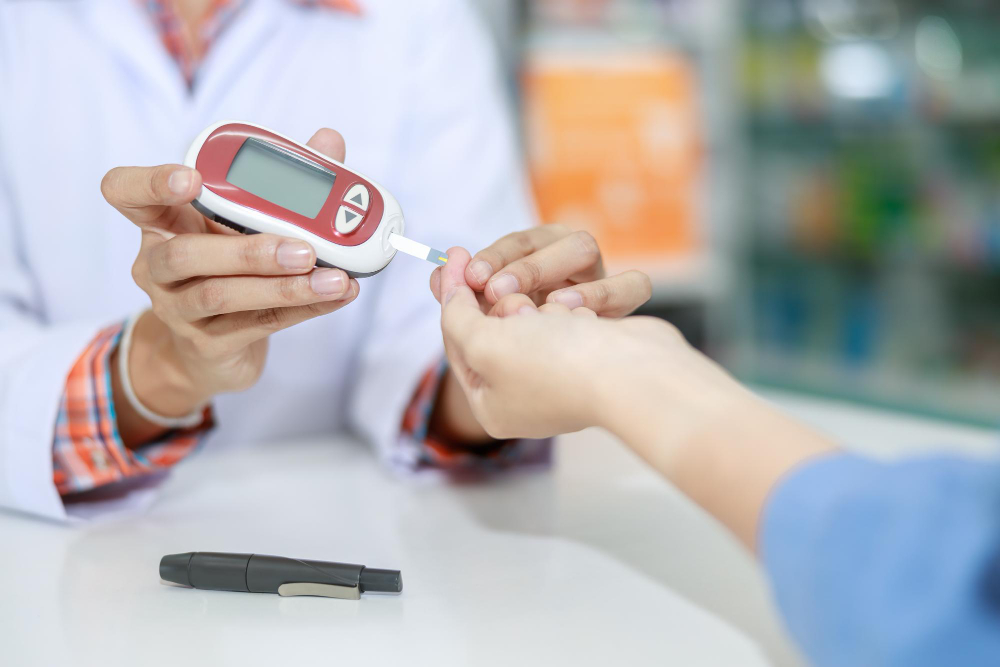Introduction
Many people wonder about the diabetes screening test and why it matters. A diabetes screening test checks your blood sugar levels. Early detection of diabetes can help prevent serious health problems. In fact, the Centers for Disease Control and Prevention (CDC) and World Health Organization (WHO) recommend regular screening for those at risk. If you are searching for a “diabetes test near me,” knowing what to expect can help you feel prepared. Let’s explore how to test for diabetes and why it is important.
Who Should Get Screened
Not everyone needs a diabetes screening test right away. However, some people have a higher risk. You should consider getting screened if you:
Even if you feel healthy, you may still be at risk. Therefore, talk to your doctor about your risk factors. Early detection of diabetes can make a big difference.
Types of Diabetes Screening Tests
There are several ways to test for diabetes. Each test measures blood sugar in a different way. Here are the most common diabetes screening tests:
Fasting Plasma Glucose (FPG) Test
This test checks your blood sugar after you have not eaten for at least eight hours. It is often done in the morning. If your blood sugar is high, it may mean you have diabetes or prediabetes.
HbA1c Test
The HbA1c test shows your average blood sugar over the past two to three months. You do not need to fast for this test. Many doctors use it to diagnose diabetes and to track how well your blood sugar is controlled.
Oral Glucose Tolerance Test (OGTT)
First, your blood sugar is checked after fasting. Then, you drink a sweet liquid. After two hours, your blood sugar is checked again. This test shows how your body handles sugar over time.
Random Blood Sugar Test
This test checks your blood sugar at any time of day. You do not need to fast. If your blood sugar is very high, it may mean you have diabetes.
How to Prepare for a Diabetes Screening Test
Preparation depends on the type of test. For the FPG and OGTT tests, you should not eat or drink anything except water for at least eight hours before the test. For the HbA1c and random blood sugar tests, you do not need to fast. However, it is always a good idea to ask your doctor for specific instructions. Bring a list of your medications to your appointment. Also, let your doctor know if you are feeling unwell.
What to Expect During and After the Test
During the diabetes screening test, a healthcare worker will take a small blood sample from your arm or finger. The process is quick and usually causes only mild discomfort. After the test, you can return to your normal activities. If you had to fast, you may want to bring a snack for after the test. Your doctor will contact you with your results. Sometimes, you may need a repeat test to confirm the diagnosis.
Understanding Your Results
Your doctor will explain what your results mean. Here is a simple guide:
If your results are not normal, do not panic. Many people manage diabetes with healthy habits and medicine. Early detection of diabetes helps you start treatment sooner.
Prevention and Next Steps
f your test shows prediabetes or diabetes, your doctor will guide you on what to do next. You may need to:
Even if your results are normal, it is wise to keep healthy habits. Regular screening helps catch changes early. Therefore, ask your doctor how often you should get a diabetes screening test. If you are searching for a “diabetes test near me,” many clinics and labs offer these services.
For personalized advice on diabetes screening, consult a healthcare professional at Dr. Gunna’s Diagnostic Center. Early action can protect your health.

